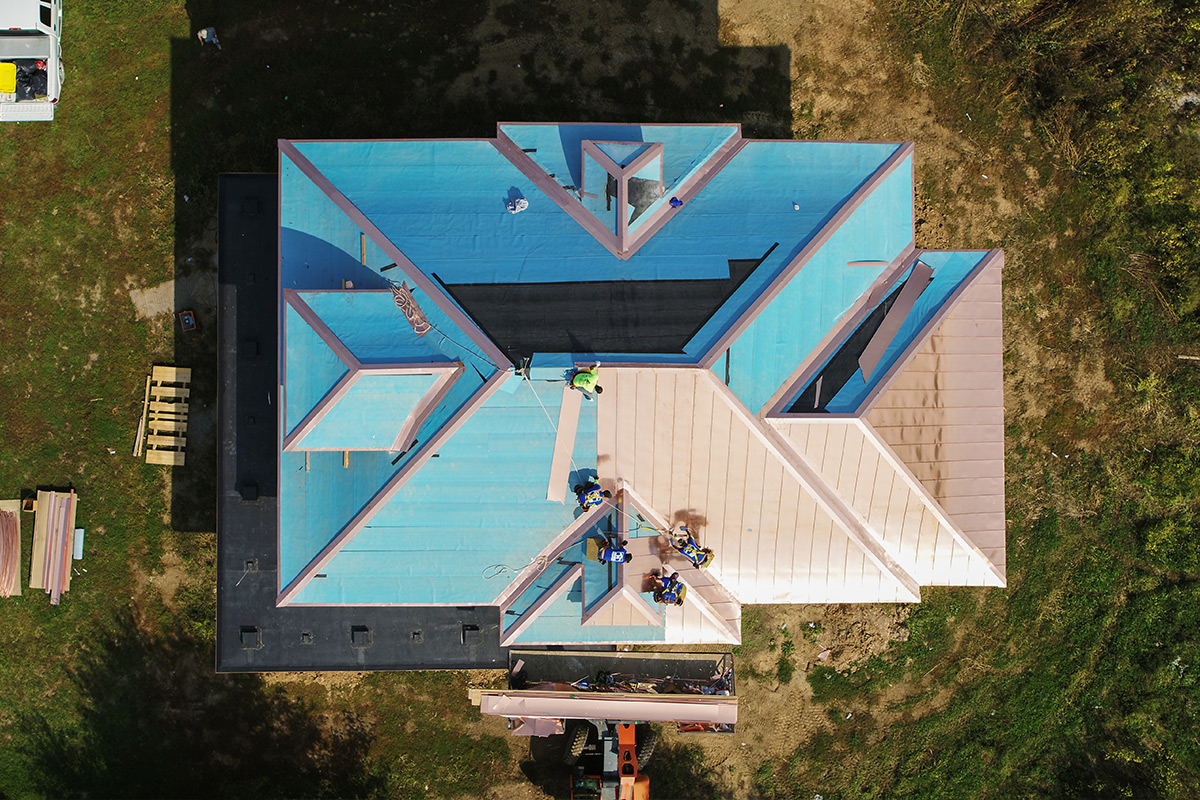If you need a new roof and you are working with a roofing contractor, you may hear them use the term “subcontractor” from time to time. So what does that mean? Is it good? Is it bad?
Understanding the role of subcontractors in the roofing industry is crucial to making informed decisions about your roofing project. Keep reading for answers to frequently asked questions about subcontracting and why it is important in the roofing industry.
What is the difference between a roofing contractor and a subcontractor?
A roofing contractor is a company or individual hired to manage and oversee residential and commercial roofing projects. They are responsible for coordinating the entire process from the initial inspection to project completion. Hopkins Roofing is a roofing contractor.
A subcontractor is hired by a roofing contractor to perform specific tasks within the project, such as installing shingles, gutters, membranes, coatings, and much more. Typically, in roofing, subcontractors make up a small crew of 10–12 individuals who help projects depending on their expertise and experience.
Why do roofing companies use subcontractors?
1. To gain access to specialized skills. Subcontractor work brings a wealth of tailored skills and expertise to the table, ensuring that each roofing task is executed with precision and proficiency. This ultimately contributes to the delivery of high-quality workmanship on your roof.
2. To address labor shortages. In the face of labor shortages, roofing contractors often hire subcontractors to efficiently handle workload. This approach ensures the completion of contracted work without compromising quality.
3. To reduce overhead. By collaborating with subcontractors, roofing companies can effectively manage fluctuations in labor requirements caused by changing weather conditions and varying levels of demand during slow or busy seasons. This approach minimizes the burden of maintaining a fixed labor force.
4. To manage multiple projects. Subcontractors allow roofing companies to handle multiple projects simultaneously. This results in deadlines being met and maintaining a competitive edge in the market.
5. To cultivate trusted partnerships. Establishing trust with reliable subcontractor crews fosters a sense of camaraderie, making them an integral part of the roofing company’s team. When you have trusted partnerships, then subcontractors are more invested in delivering exceptional results.
How will using a subcontractor affect my roof?
When a reputable roofing company collaborates with skilled subcontractors, it can positively impact the outcome of your roofing project. The expertise offered by subcontractors ensures that each aspect of the job is handled professionally, contributing to a durable and long-lasting roof.
At Hopkins Roofing, all warranties and quality assurances are our responsibility and upheld by us. We have a full project management team, which means every project is managed by a Hopkins employee, regardless of whether we are using a sub crew or not. That way we can make sure every detail is up to our standards, you are regularly updated, and you are left with a roof that is Done for Good.
Are subcontractors insured? What types of insurance do roofing companies require?
Yes, responsible roofing companies make sure their subcontractors are adequately insured. Subcontractors are required by law to have workers’ compensation insurance to cover injuries that may occur during projects. They should also carry general liability insurance, which covers any property damage.
Are there different types of subcontractors?
Yes, subcontractors in roofing can be specialized installers in various areas, such as shingles, flat roofs, metal roofs, gutters, soffits, fascia, and more. Each subcontractor has expertise in their specific field, ensuring the best results for that roofing task.
What risks are there with using subcontractors?
Effective communication between the roofing company and subcontractors is crucial for project success. Delays or issues with subcontractors may affect the overall timeline, leading to potential project delays. As subcontractors operate independently, they may not adhere to the general contractor’s standards.
At Hopkins, we meticulously select trusted crews who maintain the highest level of professionalism. Some roofing contractors lack project managers, potentially leading to project risks such as details being overlooked, messy properties, poor communication, and even leaks.
How do I know if my roofing company is using subcontractors?
To know if a roofing company uses subcontractors, simply ask them directly. Reputable roofing companies will be transparent about their use of subcontractors and provide details about the subcontractor agreement.
Does Hopkins Roofing use subcontractors?
Yes. At Hopkins Roofing, we proudly collaborate with skilled subcontractor crews on both commercial and residential projects. In addition, we have our own dedicated crews who focus on commercial projects. We have built strong and long-standing relationships with amazing subcontractor crews, ensuring exceptional results for our customers.
What should I look for when planning my roofing project?
Choose a roofing contractor that has experience working with reliable subcontractors. Look for companies with a proven track record of successful projects, transparent subcontractor agreements, and comprehensive insurance coverage.
Ready to get started?
If you have any questions or need guidance for your roofing needs, feel free to reach out to Hopkins Roofing, where we deliver top-notch roofing solutions with the help of our skilled subcontractor crews.



